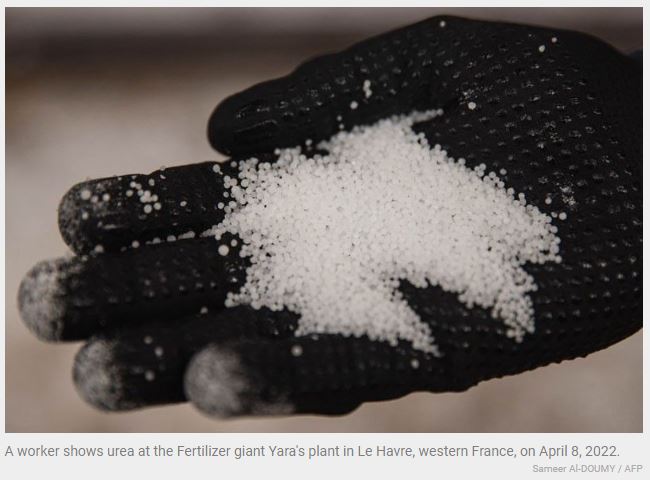Philippines: Rising fertilizer prices pose threat to food security – World Bank
MANILA, Philippines — Governments are urged to take action to make fertilizers more accessible and affordable by providing credit facilities and encouraging efficient use to prevent a prolonged food crisis.
In the latest World Bank blog, Juergen Voegele, vice president for sustainable development at the World Bank, called on policy makers to immediately act as skyrocketing fertilizer prices are posing a threat to food security.
“To ease the current food crisis, action needs to be taken now to maintain food production by making fertilizers more accessible and affordable,” he said.
Among the actions that can be taken is to address the increase in financing needs of fertilizer buyers.
He said short-term credit facilities and guarantees, mobilized with the support of international development actors may be needed.
In addition, he said governments could provide incentives to farmers to encourage a more efficient use of fertilizers and avoid overuse.
“More efficient use of fertilizers can help ensure available supplies go further, especially to countries most in need,” Voegele said.
He said investments could also be made for practices or newer technologies to increase the output for every kilogram of fertilizer used.
“This includes investing in knowledge to ensure the best suited fertilizer and quantity are applied to specific crops,” he said.
President Marcos, who concurrently heads the Department of Agriculture, earlier said the government is eyeing government-to-government deals with countries like China, Indonesia, Malaysia, Russia and the United Arab Emirates for the purchase of affordable fertilizers.
The rising cost of fertilizers is pushing up the prices of agricultural products.
Even domestic poultry producers have partly blamed fertilizer supply and price problems for a drop in corn feed production, which has affected chicken supply and prices.
The World Bank’s fertilizer price index rose nearly 15 percent from earlier this year, driven by high input costs, supply disruptions and trade restrictions.
While the war in Ukraine has affected mostly countries that import wheat and corn, Voegele said many countries, including major food exporters, are net importers of fertilizer.
He said the high fertilizer prices may spread to other crops including rice.
“Our ability to maintain global trade and the movement of fertilizers will be one of the determining factors on the length and severity of this food crisis. As farmers have started to alter their production due to challenges in fertilizers, policy makers must urgently make the right choices so that the world can cut short the current food crisis,” he said.
Source: https://www.philstar.com/business/2022/07/26/2197916/rising-fertilizer-prices-pose-threat-food-security-world-bank


 English
English




